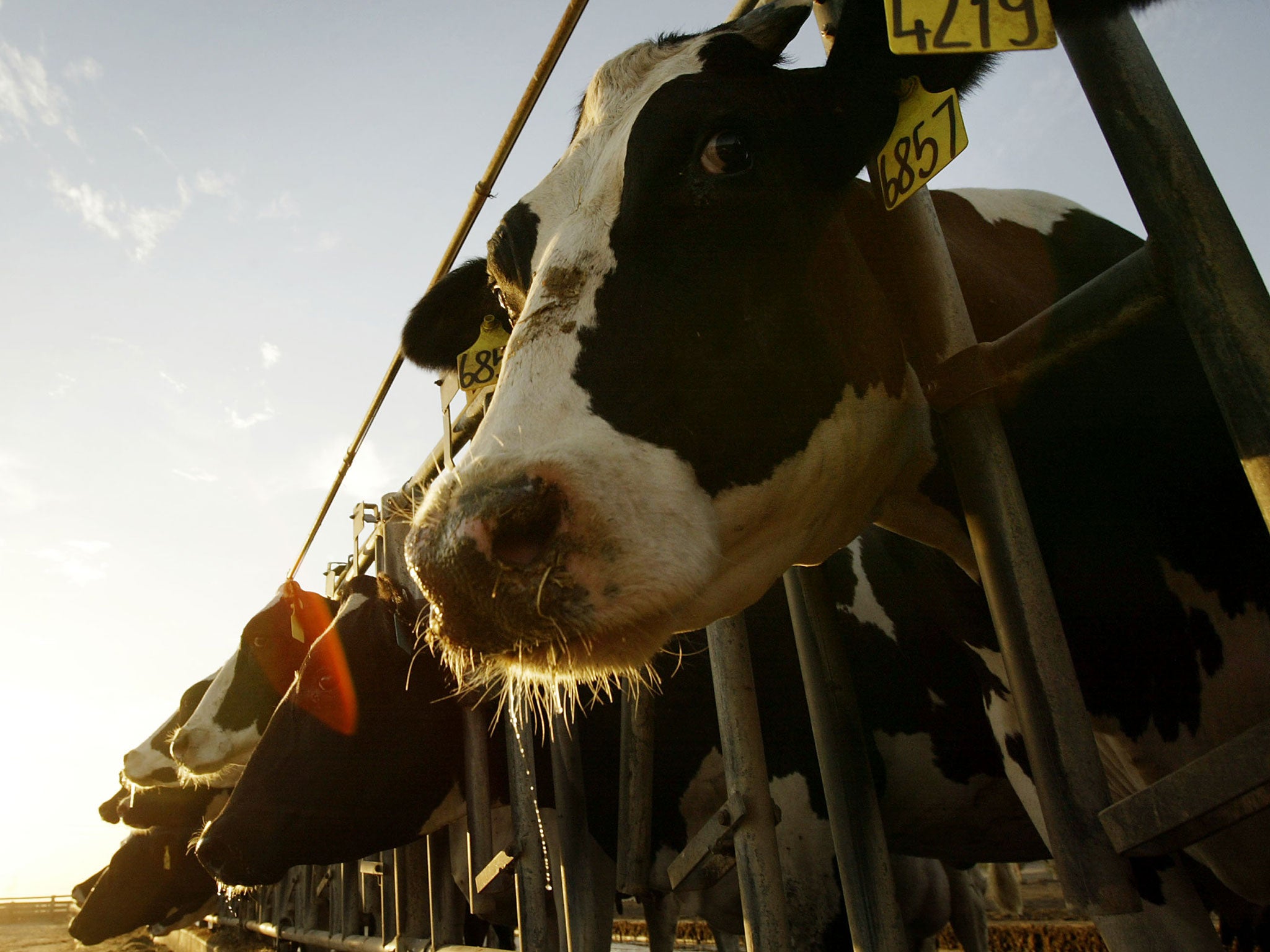Forget badgers. If we really care about animal welfare, it's time to put a stop to mega-farms
Proposals for what are called mega-farms have been rejected in the past, but now a significant change of attitude seems to be taking place.

There has been hectic activity in the animal activists’ warren. The Coalition of Badger Action Groups has forced a patron of the Dorset Wildlife Trust to step down, on the grounds – mistaken, as it happens – that she supports the Government’s badger cull. The RSPCA has vowed to continue its campaign of bringing errant hunt servants to court. Last year’s convictions for those prosecuted by the RSPCA for cruelty to animals in England and Wales had risen by a third last year, it reported.
Meanwhile, an incomparably greater menace to animal – and many would argue, human – welfare is creeping forward without much more than a squeak or bark of protest. Industrial-scale farms, massive factories where animals are units of production, are on their way. At a place called Foston in Derbyshire, a pig farm for 25,000 pigs, including 2,500 sows, has been proposed, and opposed, since 2011. Recently, and at a key moment in the planning process, Defra appears to have given this form of factory farming its support. In Wales, a decision on a 1,000-cow dairy farm will shortly be announced.
There have been proposals for what are called mega-farms before – a vast dairy planned for Nocton in Lincolnshire was abandoned in 2011 after objections from the Environment Agency – but a significant change of attitude now seems to be taking place. “Increasing the efficiency of food production will help us meet rising demand for food,” a Defra spokeswoman has said. “This can be done on any scale and in ways that actually deliver environmental benefits.”
If Foston goes through, we can expect increasing numbers of application for intense mass-farming on the American scale to make their way through our newly relaxed, growth-friendly planning system.
It feels like a moment of decision which will affect not only farming and the landscape, but also touches on our attitude to the food we eat and the animals that provide it. Yet, oddly, the very activists who one might expect to put pressure on the Government remain silent. It is easier, in this age of emotion and sentimentality, to gain public support by going after landowners who are beastly to badgers, or some miserable character with starving cats in a council flat.
Supporters of mega-farms point out that we import 60 per cent of our pork, much of it from countries where farming standards are less humane than in the UK. Why not redress the balance, they ask, by mass-producing cheaper meat here?
The arguments against this utilitarian approach can seem footlingly middle class – the fretful concerns of those who have never had to worry about the cost of feeding a family. Against them, the food industries lobby can also be pretty ruthless. When the Soil Association opposed the original Foston application, it received a letter from libel lawyers warning that further dissemination of their objections “would risk incurring severe liabilities”.
Yet the arguments against the mass production of meat have never been clearer. The recent horse-meat scandal has revealed what can happen when price and profit become the only criteria in the food chain. Diseases can be passed from animals to humans and all the evidence suggests that the more pigs or cattle are kept in close proximity and in large numbers, the faster diseases can mutate and the more resistant they become to antibiotics.
It might be tricky, in political and PR terms, for the RSPCA and animal rights bodies to take a stand on this issue, but the fight is more important than the plight of a few badgers and foxes.
So you’re posh, Alexander. Stop complaining
It is a tough life being an actor, as we all know, and recently a new source of angst has been revealed. Those who have come from nice middle-class families and have been privately educated are feeling increasingly misunderstood.
A few months ago, the Old Harrovian Benedict Cumberbatch stroppily revealed that he was thinking of moving to America because of “all the posh-bashing that goes on”. Now the comedian Alexander Armstrong, educated at Durham public school, has joined the toff rebellion.
“I do bitterly resent it when people of any kind are attacked because of something that is no fault of theirs,” he grumbled in a recent interview. “Why should your background be held against you?”
Even by thespian standards, it is an odd complaint. It is precisely background which, in acting as in many other walks of life, provides the privileged few with a huge advantage over everyone else. Being on the receiving end of a bit of posh-bashing now and then would seem a small price to pay.
Join our commenting forum
Join thought-provoking conversations, follow other Independent readers and see their replies
Comments
Bookmark popover
Removed from bookmarks